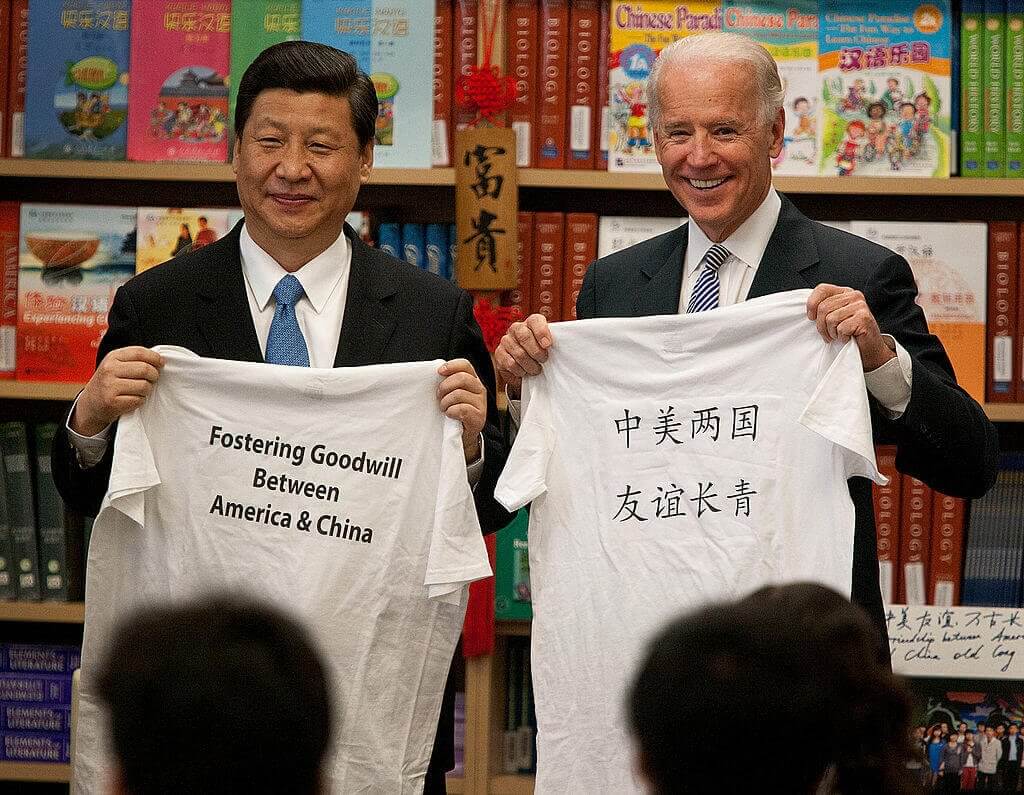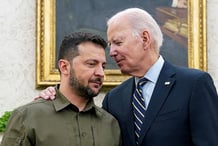Since last year, there have been thoughts that China and the United States have already started a Cold War. American President Donald Trump was actually the initiator of this war. However, his policies can be described as a “belated response” by the United States to China’s new economic, strategic and ideological challenges, which have begun to grow since Xi Jinping became the leader of the Communist Party in 2012. Now Democrat Joe Biden’s victory is on US presidential elections makes it possible to move from the confrontation between two powerful countries to “detente” much faster than it would be under the further Trump presidency, writes Bloomberg…
The Chinese government was in no hurry to congratulate Biden on his victory; this can be called caution. As in the campaign, Xi Jinping and his advisers tried not to provoke Trump.
The head of the China and Globalization think tank in Beijing said the Biden administration “will provide China and the US with more opportunities for dialogue and cooperation channels on energy conservation and emission reduction, economic and trade cooperation, and pandemic prevention and control.” Former Vice Minister of Foreign Affairs of China He Yafei has a similar opinion.
It can be assumed that Biden plans to return to the times of the administration of US President Barack Obama when America and China were inclined towards active cooperation and a “win-win partnership.”
When asked about the “superpower competition” in 2019, Biden replied that China is not a competitor for the United States.
However, the potential “detente” between the US and China should not be confused with friendliness. Whatever awaits US diplomacy under Biden’s new presidency, it is unlikely that this will be a new era of Sino-American friendship. Detente only means a decrease in tension and a decrease in the risk of an exacerbation of the Cold War.
“The United States and the Soviet Union are ideological rivals,” wrote the American diplomat Henry Kissinger, who was one of the “architects” of detente in the 1970s.
Detente for Kissinger meant “curbing the ambitions of states for coexistence.”
Now it is the United States and China that find themselves, as Kissinger noted in an interview last year, “in the foothills of the Cold War.”
Trump wasn’t alone in starting this Cold War. It grew out of the ambitions of China under the leadership of Xi Jinping, who aimed to achieve something like parity with the United States, not only in the economy but also in the politics of the great powers. It is also interesting that it took the Americans a long time to realize that they were participants in the Cold War with China.
When Trump first threatened to set tariffs on Chinese goods during the 2016 election campaign, the foreign policy elite “taunted.” Now they don’t laugh anymore. Since 2017, the American public’s sentiment towards China has grown stronger. China is one of the few topics on which there is also a genuine bipartisan consensus in the US political elite.
Unlike Biden himself, members of his US national security team have been strengthening their strong position on China over the past four years.
Biden’s key Asia advisors Eli Ratner and Kurt Campbell also acknowledged that the Obama administration, like its predecessors, had underestimated the global ambitions of China’s leaders and their determination to resist political liberalization. However, despite the many differences between the two countries, each must be prepared to coexist with the other as a great power.
US policy towards China should combine “elements of competition and cooperation” rather than “competition for the sake of competition”, which could provoke a dangerous confrontation.
However, the problem, of course, is that the superpower led by the Communist Party does not see peaceful coexistence as an end in itself.
The most important lever that once made Moscow observe detente was the “opening” of cooperation between the United States and China in February 1972. Nevertheless, even then, the Chinese “political revolutionary” Mao Zedong had his own views on the relationship between America and China.
How will China now view the new Biden administration? Beijing would like to get rid of the Trump administration’s “trade and technical war” with the United States. In particular, China wants to get rid of the measures imposed by the US Department of Commerce.
In the tech war, Biden’s team seems ready to make concessions. Some of the new president’s advisers want to offer broader benefits to foreign technology companies. However, it is difficult to say whether China itself will be willing to make concessions.
Beijing’s goal is to achieve “technological independence.” The obvious US response is that America will also try to move forward.
These tech races can last for years. Similar races are already underway in the field of artificial intelligence and even vaccines against COVID.
Biden should have no illusions about Xi Jinping because the Chinese leader has his own ambitions, which may not coincide with the views of the United States.
Relations between Washington and Beijing have stalled this year. The strategic dialogue has failed. Detente could ensure the start of constructive communication between countries.
The need for detente has become the growing interdependence of the countries of the world. The pandemic has revealed a tremendous degree of interdependence and shared responsibility among states.
The new virus has caused a global pandemic and the death of hundreds of thousands of Americans. Economically, the US and China are still interdependent. Trump’s tariffs have done nothing to reduce the bilateral trade deficit.
The United States and China are at the foothills of a real Cold War. Nevertheless, the detente between Beijing and Washington cannot mean that the United States will make concessions to China because that would be a mistake, the newspaper concludes.














